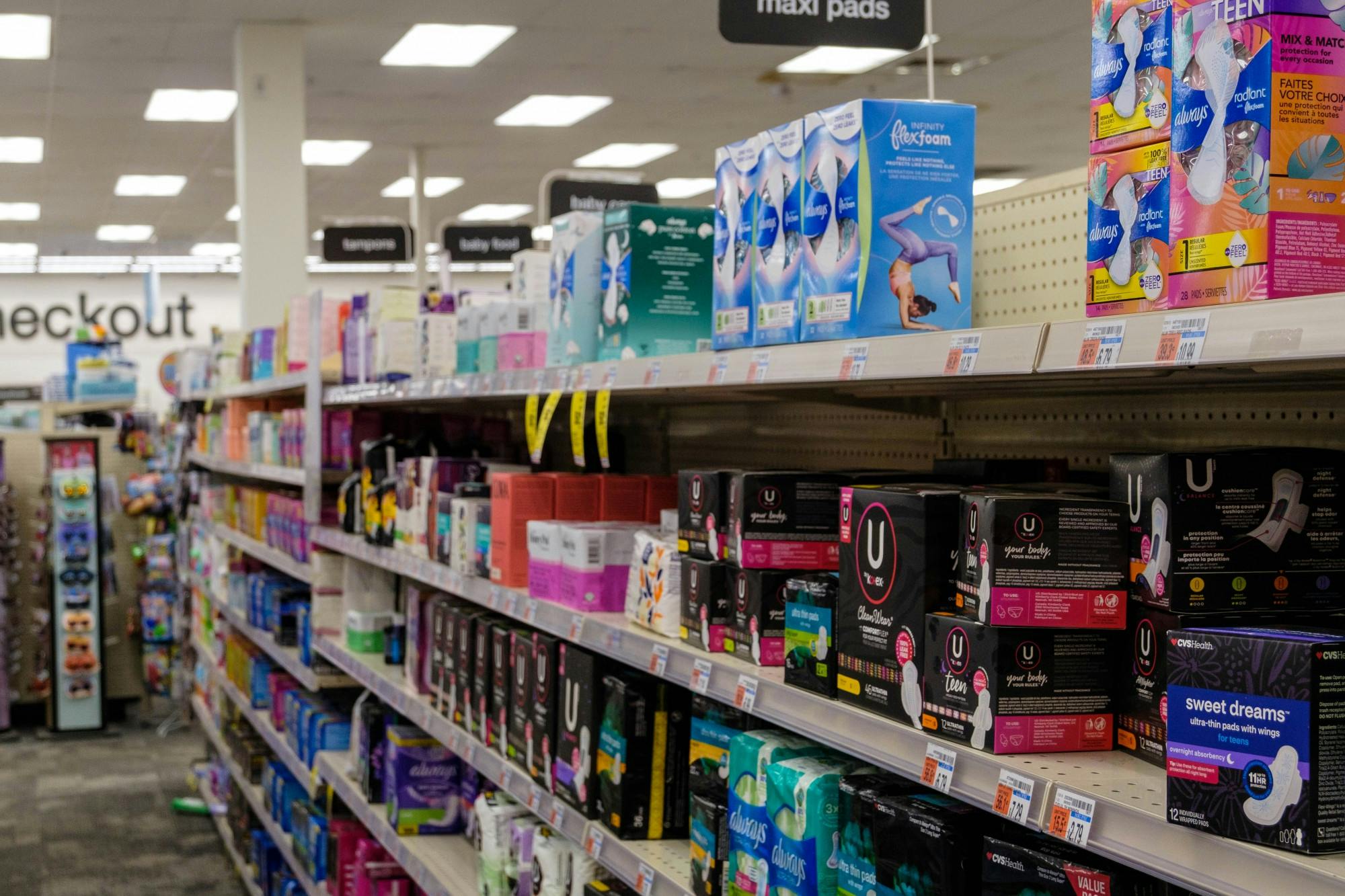On April 18, New Hampshire State Senate education committee voted against HB129, a proposed bill that would decrease access to menstrual products in schools, according to New Hampshire state senator Sue Prentiss. The decision came after government professor Deborah Brooks and former Dartmouth Democrats president Miles Brown ’23 traveled to Concord to testify against the bill.
According to Prentiss, the legislation was controversial because it would change the 2019 rendition of the bill, called the “period poverty law,” which requires schools to supply menstrual products in bathrooms. HB129 would decrease access to the products by mandating their distribution by nurses and administrators in schools rather than in bathrooms.
Ultimately, the committee voted 4-1 that the bill was “inexpedient to legislate,” meaning they believe the rest of the Senate should not support it, according to Brown. The bill will move past the education committee and be put to another vote on the Senate floor in May, Prentiss said.
“The real thing that [HB]129 wanted to do was move [menstrual products] back to the school nurse’s office and take them out of the bathroom,” Prentiss said. “I think the underlying, current law is adequate. It does the job, and we shouldn’t tinker with it.”
Prentiss said she thought that the House’s move to “kill the bill” would be the end of the conversation. Rep. Jess Edwards, R-Rockingham, who sponsored HB129, disagreed, predicting the bill’s ultimate success.
Edwards explained that the bill was initially proposed in response to “misbehaviors” with the provided products at the Auburn Village School in Auburn, New Hampshire. Edwards said that the school’s principal reported students hanging tampons from the ceilings to him, adding that he was worried about “wasted product.”
“For some ungodly reason, this has become partisan,” Edwards said. “It’s a forward, obvious policy issue, but it’s become partisan with one political party on one side and the other political party on the side of reality. I think the reality side of the Senate is going to pass this.”
Brown said that he and Brooks were worried about HB129 restricting access to menstrual products. By returning control of the products over to nurses and other adults, “you increase the stigma” of using the products, Brown explained.
“If instructors and students in public schools don’t have access to these products, they’re going to be missing class,” Brown said. “That can take a toll on their mental health, and that’s a real problem. It’s just important that we do everything we can as a state to get kids in the classroom and provide them access to education.”
Dartmouth Democrats policy director Quinn Allred ’26 said that the new bill creates “a form of alienation” and “increased interaction that’s just not necessary.”
“Anyone who menstruates is naturally going to be uncomfortable involving more people into that intimate process,” Allred said. “[HB129 will] limit access to these products, while the whole [point of the] bill is meant to increase access. So I don’t think this change to it makes sense.”
Edwards, on the other hand, said the bill would not limit access to menstrual products.
“All you have to do is read what the words say, and you would know that the people who are saying [that it would restrict access] are just patently wrong,” Edwards said. “People are wrong a lot — and this time, that group of people you’re citing are just wrong.”
In the past few years, there have been pushes from New Hampshire Democrats to expand access to menstrual products into elementary schools, Brown said. While Brown called this push a “complicated layer” of the bill — and one that would require expanding the jurisdiction of the bill — he explained that some people begin to menstruate before middle school. He added that New Hampshire’s “village schools” — which include students from kindergarten through eighth grade — blur the lines between elementary and middle school education.
“We want to keep the original language of putting products in bathrooms, but also we think we should expand this beyond middle and high schools,” Brown said. “It’s also a big problem in certain communities where there’s no differentiation necessarily between elementary and middle schools … They don’t have the products [in those schools].”
In response to the bill’s purported motivation — misbehaviors regarding menstrual products — Brooks wrote in an email statement that students can also clog up toilets using paper towels. She explained that educating the youngest elementary school students on the proper use of tampons is a “legitimately tricky business” but should not form the basis of the bill.
“Vandalism and misuse potential of pads tends to be mostly a predictable strawman argument based on isolated and typically unsubstantiated anecdotes with reference to middle school and high school bathrooms,” Brooks wrote. “Those concerns may become somewhat more legitimate and problematic when it comes to six-year-olds discovering mysterious things they have never seen before that pop out of a machine on the wall when you pull a lever and magically expand once you put water on them.”
Edwards said that his initial draft of the bill only intended to compensate school districts for providing menstrual products. He claimed that the initial edition of the “period poverty law” ran against the New Hampshire state constitution, which he said outlaws unfunded mandates.
“The bill I proposed basically said that given this is the existing policy, then it’s up to us to reimburse the school districts for their cost,” Edwards said. “My bill was about having the state pay for the mandate.”
He said that later provisions — giving the schools “a little bit more discretion” on menstrual product distribution — were added in by the finance committee after he wrote the legislation.
Charlotte Hampton is the editor-in-chief of The Dartmouth. She hails from New York, N.Y., and is studying government and philosophy at the College.
She can be reached at editor@thedartmouth.com or on Signal at 9176831832.




